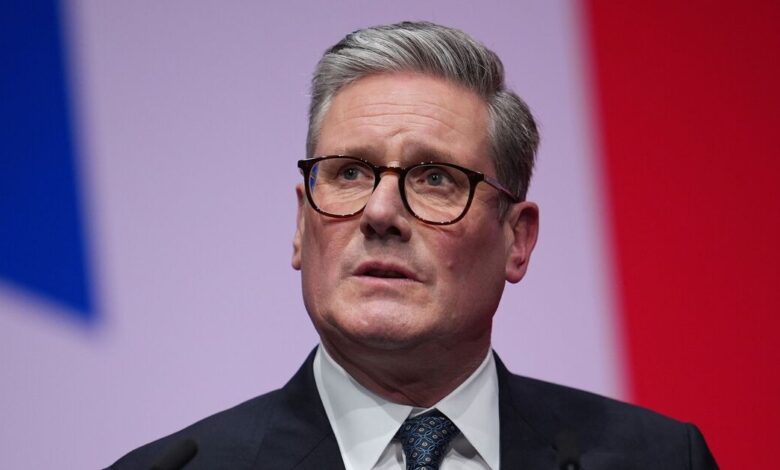UK PM Under Pressure From Farage

… Tightens Migration Rules
AfriqueCAN
Prime Minister Keir Starmer announced a new salvo of measures to toughen up Britain’s migration system on Sunday, saying many immigrants would have to wait longer before getting the status they need to claim welfare.
Starmer’s government — which is due to publish plans for new legislation to reduce immigration on Monday — is under pressure to counter the rise in popularity of Nigel Farage’s right-wing, anti-immigration Reform UK party.
Over the weekend, interior minister Yvette Cooper announced plans to restrict skilled worker visas to graduate-level applicants, prevent care sector firms from recruiting abroad and require businesses to increase training for local workers.
“Every area of the immigration system, including work, family and study, will be tightened up so we have more control,” Starmer said in a statement. “Enforcement will be tougher than ever and migration numbers will fall.”
Under the changes, automatic settlement and citizenship for people who move to Britain will apply after 10 years, up from five years now, although highly skilled workers — such as nurses, doctors, engineers and AI experts — would be fast-tracked.
Migrants who are in the UK on visas are typically ineligible for welfare benefits and social housing.
The government also said it plans to raise English language requirements to include all adult dependents who will have to show a basic understanding of English. It said the change would help integration and reduce the risks of exploitation.
“This is a clean break from the past and will ensure settlement in this country is a privilege that must be earned, not a right,” Starmer said.
“And when people come to our country, they should also commit to integration and to learning our language,” he said.
The number of European Union migrants to Britain fell sharply after Brexit but new visa rules, a rise in people arriving from Ukraine and Hong Kong and higher net numbers of foreign students led to an overall surge in recent years.
Net migration — the number of people coming to Britain minus the number leaving — hit a record 906,000 in the year to June 2023, up from 184,000 who arrived in the same period during 2019, when Britain was still in the EU.
Employers’ groups are worried that tightening the rules on foreign workers will make it harder for companies to fill vacancies.
“This major intervention in the labor market will leave many employers fearful that in tackling concerns about immigration, the government goes after the wrong target,” Neil Carberry, chief executive of the Recruitment and Employment Confederation (REC), said.
Being open to skilled workers was essential for Britain “but so is a controlled, affordable and responsive immigration system that keeps investment flowing to the UK,” Carberry said.





